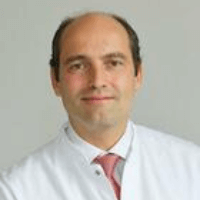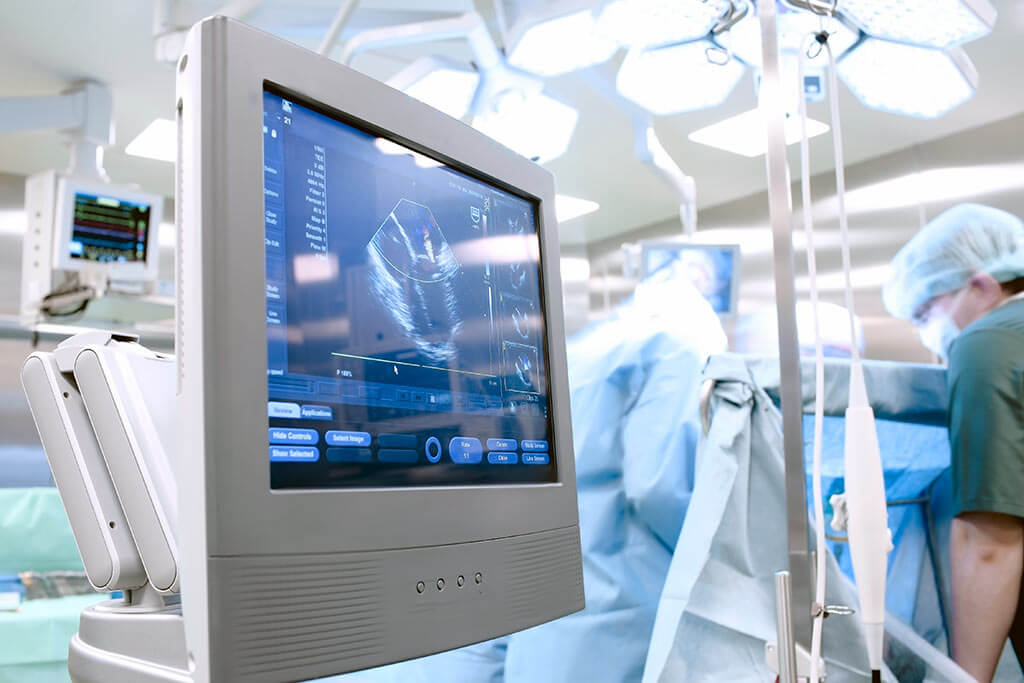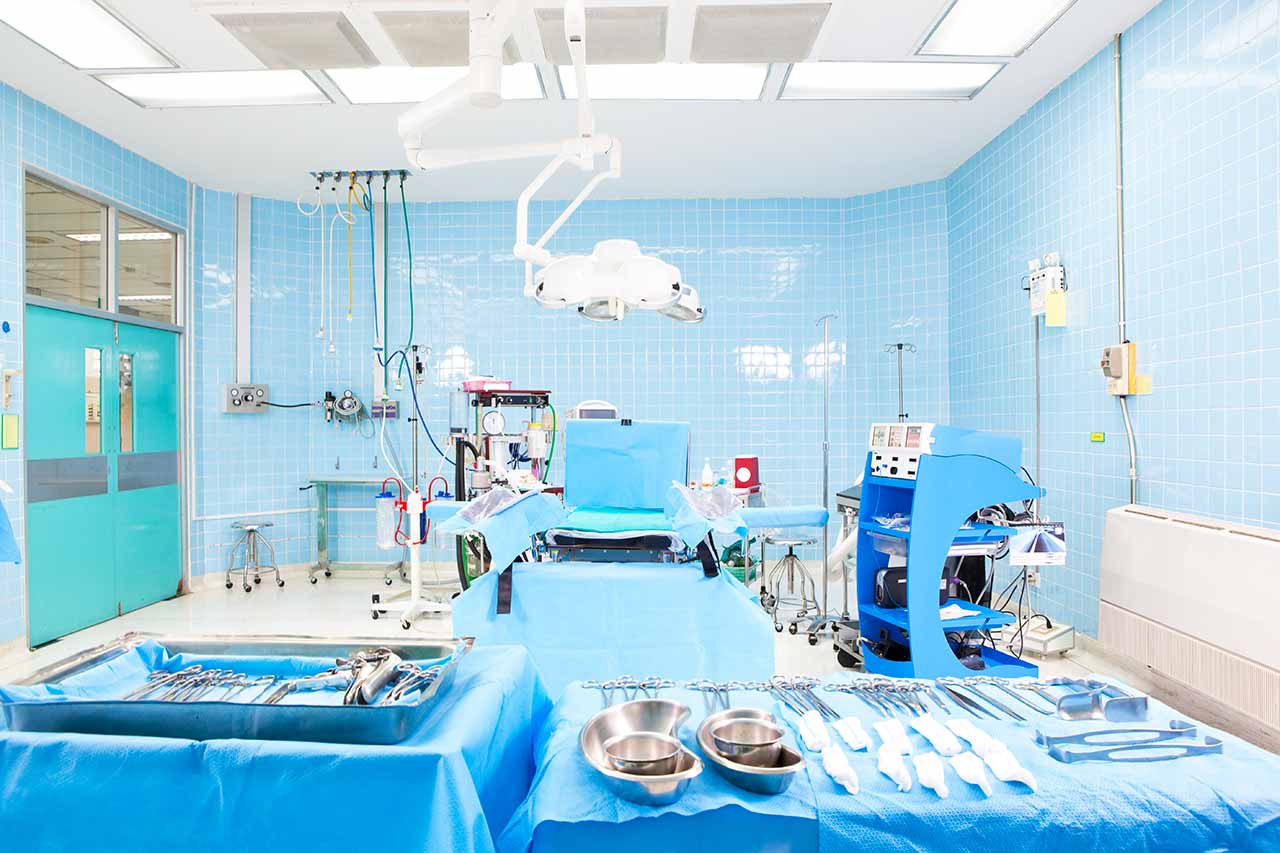
The program includes:
- Initial presentation in the clinic
- clinical history taking
- review of medical records
- physical examination
- laboratory tests:
- complete blood count
- general urine analysis
- biochemical analysis of blood
- inflammation indicators (CRP, ESR)
- indicators blood coagulation
- ultrasound examination of the breast
- preoperative care
- partial resection of the breast abscesses
- histologically examination of the remote tissues
- symptomatic treatment
- control examinations
- the cost of essential medicines and materials
- nursing services
- full hospital accommodation
- explanation of future recommendations
Required documents
- Medical records
- Ultrasound scan (if available)
Service
You may also book:
 BookingHealth Price from:
BookingHealth Price from:
About the department
The Department of Gynecology, Gynecologic Oncology, Urogynecology, Mammology and Obstetrics at the Hospital Harlaching Munich offers the full range of high-quality medical services in the areas of its specialization. The focus of the department's gynecologists is on the patients with suspected cancer of the female genital organs and breast cancer. In these medical areas, the department is certified by the German Cancer Society, and therefore it has modern therapeutic methods and highly qualified personnel to provide effective care for women with cancers. The department also deals with the treatment of such benign gynecologic diseases as uterine fibroids and endometriosis. In addition, the specialists of the medical facility provide conservative and surgical treatment of urogynecologic diseases – urinary incontinence and pelvic organ prolapse. The department annually treats more than 5,500 patients with diseases of varying severity. The medical facility has the status of the Level I Perinatal Center. It provides comprehensive obstetric services for pregnancy monitoring, childbirth and postpartum care. More than 2,300 babies are born in the department's birthing rooms every year. The department is headed by Prof. Dr. med. Christoph Scholz.
The department's medical team specializes in the treatment of cervical cancer and regularly demonstrates high treatment success rates for this pathology. After studying the patient's medical history and clinical examination, the doctor appoints the required diagnostic examinations to confirm or exclude the diagnosis. As a rule, the diagnostics includes laboratory tests, computed tomography, magnetic resonance imaging, ultrasound scanning and biopsy. In some cases, positron emission tomography (PET) or combined positron emission tomography and computed tomography (PET/CT) may be required. After receiving the results of the examination, the clinical case of each patient is considered at a weekly interdisciplinary tumor board with the participation of gynecologists, oncologists, chemotherapists, radiation therapists, etc. The main therapeutic options for cervical cancer are radiation therapy, chemotherapy and surgery. The decision to carry out certain therapeutic procedures is made cooperatively by the doctors of the tumor board. If cervical cancer is detected in women of childbearing age, the department's specialists select the optimal course of therapy, after which a woman can have children in the future (for example, doctors avoid the removal of the uterus). Some women undergo a total mesometrial resection, the essence of which is to remove tissues related to the cervix and with a single morphogenetic structure. The procedure eliminates trauma to the bladder, vagina and intestines. Total mesometrial resection gives a very good chance for a complete cure. The department also offers such additional treatment methods as art therapy, physiotherapy, therapeutic exercises, massage, lymphatic drainage and naturopathy methods. Psychological care is an integral part of the therapeutic process, since most women with cancer cannot cope with emotional distress on their own.
Special attention in the department's clinical practice is given to the treatment of breast cancer. The department's specialists always use an interdisciplinary approach, so the therapy is provided cooperatively by gynecologists, mammologists, oncologists, radiologists, radiation therapists and chemotherapists. It goes without saying that the doctors consider each clinical case individually and develop an optimal treatment regimen for each woman, taking into account her clinical indications, age and other factors. The first-line treatment for patients with breast cancer is surgical resection of the tumor. It should be noted that in 80% of cases, the department's surgeons manage to perform effective resection of a malignant tumor, while preserving the breast. However, in advanced stages of cancer, the doctors still have to resort to total mastectomy (total removal of the breast). The department cooperates with highly qualified plastic surgeons who successfully perform breast reconstructive surgery using implants and the patient's own tissues. The surgical treatment is complemented by radiation therapy, chemotherapy, anti-hormone therapy and antibody therapy.
The department's urogynecologists deal with the treatment of various types of urinary incontinence. Ultrasound, cystoscopy and urodynamic examinations are common examinations for making an accurate diagnosis. The first-line therapy is a course of physical therapy to strengthen the muscles of the pelvic floor, as well as drug treatment. If conservative techniques do not allow the doctors to achieve the desired result, they resort to interventional procedures and surgical interventions. The doctors specialize in botulinum toxin injection therapy, TVT procedures, colposuspension and neuromodulation. The department also provides treatment for pelvic organ prolapse. This pathology mostly requires surgical correction, but in some cases conservative treatment with the use of pessaries can be sufficient.
As the Level I Perinatal Center, the department offers comprehensive management of pregnancy, childbirth and postnatal care for the mother and baby. The department's obstetricians have successful experience in high risk pregnancies and multiple pregnancies. The department's birthing rooms are equipped according to the modern standards of German medicine. The birthing rooms also include baths for childbirth in water. If desired, the woman will be offered pain management during childbirth: epidural anesthesia, acupuncture, aromatherapy, homeopathy, relaxation baths. The obstetricians annually deliver more than 2,300 babies, which guarantees maximum safety for both mother and baby.
The department's key clinical focuses include:
- Diagnostics and treatment of cervical cancer
- Diagnostics
- Laboratory tests
- Ultrasound scanning
- Computed tomography (CT)
- Magnetic resonance imaging (MRI)
- Biopsy
- Positron emission tomography (PET)
- Combined method of positron emission tomography with computed tomography (PET/CT)
- Therapy
- Surgical resection of tumors
- Chemotherapy
- Radiation therapy
- Physiotherapy
- Therapeutic exercises
- Massage
- Lymphatic drainage
- Naturopathy
- Psychological care
- Art therapy
- Diagnostics
- Diagnostics and treatment of ovarian cancer
- Diagnostics
- Laboratory tests
- Ultrasound scanning
- Computed tomography (CT)
- Magnetic resonance imaging (MRI)
- Biopsy
- Therapy
- Surgical resection of tumors
- Chemotherapy
- Radiation therapy
- Antibody therapy
- Physiotherapy
- Therapeutic exercises
- Massage
- Lymphatic drainage
- Naturopathy
- Psychological care
- Art therapy
- Diagnostics
- Diagnostics and treatment of breast cancer
- Diagnostics
- Ultrasound scanning
- Computed tomography (CT)
- Magnetic resonance imaging (MRI)
- Biopsy
- Mammography
- Bone scintigraphy
- Therapy
- Surgical resection of tumor, total mastectomy and reconstructive plastic surgery
- Chemotherapy
- Antibody therapy
- Anti-hormone therapy
- Psychological care
- Diagnostics
- Diagnostics and treatment of benign diseases of the female genitalia
- Removal of uterine fibroids
- Conservative and surgical treatment of endometriosis
- Laser removal of genital warts
- Removal of Bartholin's cysts
- Tubal ligation
- Removal of benign breast tumors
- Hysteroscopy
- Diagnostics and treatment of urogynecologic diseases
- Urinary incontinence
- Physiotherapy to strengthen the pelvic muscles and drug therapy
- Botulinum toxin injection therapy
- TVT procedures
- Colposuspension
- Neuromodulation
- Pelvic organ prolapse
- Physiotherapy to strengthen the pelvic floor muscles
- Pessary treatment
- Surgical treatment
- Urinary incontinence
- Obstetric services
- Integrated management of pregnancy
- Childbirth (natural childbirth, C-section, water childbirth)
- Postnatal care for both mother and baby
- Other medical services
Curriculum vitae
Higher Education and Professional Career
- 1996 - 2003 Study of Human Medicine at the Ludwig Maximilian University of Munich (Germany), Imperial College London (UK) and Harvard Medical School in Boston (USA).
- 1997 - 2000 Training and obtaining a Bachelor's Degree in Philosophy at the Munich School of Philosophy.
- 1998 - 2003 Cusanuswerk Scholarship for a Research Project.
- 2001 Internship at the Cellular and Molecular Immunology Laboratory, National Institutes of Health, Bethesda (USA).
- 2004 - 2009 Assistant Physician in the Department of Gynecology at the University Hospital of Ludwig Maximilian University of Munich.
- 2009 Board certification in Gynecology and Obstetrics.
- 2009 - 2011 Senior Physician in the Department of Gynecology at the University Hospital of Ludwig Maximilian University of Munich.
- 2011 - 2012 Senior Physician in the Department of Gynecology at the University Hospital Duesseldorf.
- 2012 Master of Health Business Administration (MHBA), University of Erlangen-Nuremberg.
- Since 2012 Senior Physician with management responsibilities in the Department of Gynecology at the University Hospital Of Ulm.
- 2014 Extraordinary Professorship at the Ulm University.
- Since 2019 Chief Physician of the Department of Gynecology, Gynecologic Oncology, Urogynecology, Mammology and Obstetrics at the Hospital Harlaching Munich, as well as Chief Physician of the department with the same name at the Hospital Neuperlach Munich.
Clinical Interests
- Treatment of female genital cancers.
- Treatment of breast diseases.
- Obstetric care for pregnant women with special needs.
- Minimally invasive gynecologic surgery.
Photo of the doctor: (c) München Klinik Harlaching
About hospital
According to the prestigious Focus magazine, the Hospital Harlaching Munich ranks among the top 20 medical centers in Bavaria, and is also one of the 100 best hospitals in Germany!
The medical complex provides top-class medical care, which meets modern European standards. The medical facility is an Academic Hospital of the Ludwig Maximilian University of Munich, thanks to which it has access to the very latest clinical achievements. The hospital is proud of its large bed capacity, which accounts for more than 700 beds. The doctors of the medical complex annually provide treatment to over 79,000 patients both on an inpatient and outpatient basis. The work of the hospital's medical team is based on an individual approach to each patient, since each patient and his clinical case are unique. The specialists develop individual medical programs, which allow them to achieve complete cure even in particularly complex clinical cases.
The hospital includes 17 specialized departments and many narrowly focused centers, including the Trauma Center, Breast Center, Gynecologic Cancer Center, Level I Perinatal Center, etc. The priority clinical activities of the medical facility include traumatology, neurology, gynecology and obstetrics, oncology, urology, pediatric and adolescent medicine. In addition, the doctors of the medical complex have long experience in the treatment of diseases of the cardiovascular system, kidneys and urinary tract, diseases of the gastrointestinal tract and lungs.
The hospital has been awarded the prestigious DIN EN ISO 9001:2015 certificate, which confirms the excellent quality of medical services and high patient satisfaction with medical care. The successful clinical activities of the hospital are also awarded with certificates from the German Cancer Society, the German Cardiac Society, the German Stroke Society, the German Trauma Society, the German Hernia Society and other specialized medical associations.
The patients of the hospital benefit from medical care by leading doctors in Germany with rich practical experience and excellent qualifications. The specialists devote enough time to personal communication with patients, strive to establish trust with them and do everything possible to ensure not only a successful treatment outcome, but also a pleasant stay in the hospital.
Photo: (с) depositphotos
Accommodation in hospital
Patients rooms
The patients of the Hospital Harlaching Munich live in comfortable single and double rooms with light colors. Each patient room has an ensuite bathroom with shower and toilet. The standard patient room furnishings include an automatically adjustable bed, a bedside table, a wardrobe, a table and chairs for receiving visitors. The bed has a built-in modern multimedia system with the help of which the patient can control the TV and radio. In addition, the multimedia system can be used to make telephone calls. Wi-Fi access is also available in the hospital. There is a ban on smoking in the hospital.
The patients can also live in enhanced comfort rooms. These patient rooms have additional toiletries, towels, hairdryer, safe, mini-fridge and upholstered furniture.
The hospital has a library with a wide selection of books for every taste, including audio books, magazines, DVDs and CDs.
The hospital also has a cozy cafe where the patients can have a tasty snack, enjoy a cup of aromatic coffee or hot tea with dessert.
Meals and Menus
The patient and the accompanying person are offered tasty and healthy three meals a day. The diet is quite varied. The restaurant of the hospital is certified in accordance with the DIN ISO 22000: 2005 quality standards, so the patients can be sure that when cooking the chefs use only the freshest and highest quality products.
If you are on a specific diet for some reason, you will be offered an individual menu. Please inform the medical staff about your dietary preferences prior to the treatment.
Further details
Standard rooms include:
Religion
The religious services are available upon request.
Accompanying person
During the inpatient program, the accompanying person can live with the patient in a patient room or a hotel of his choice. Our managers will help you choose the most suitable option.
Hotel
During the outpatient program, the patient can stay at the hotel of his choice. Our managers will help you choose the most suitable option.




